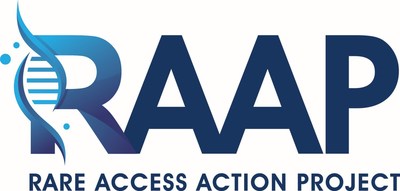Subjects: NPT, SVY, POL
Rare Disease Drug Market May be Devastated by Current Proposed Changes to Medicare D, finds the Rare Access Action Project
WASHINGTON, Feb. 25, 2020 /PRNewswire/ -- The Rare Access Action Project (RAAP) announced results of a devastating report conducted on the impact of proposed change to Medicare D to companies that develop treatments for Rare Diseases, conditions that impact fewer than 200,000 people and that often have no treatments of any kind. "The current proposals for changes to Medicare D are supposed to address rising costs to patients," noted RAAP Executive Director Michael Eging. "Unfortunately, these rather sweeping one-size-fits all plans could actually devastate the orphan drug market that serves patients who already have few options ? if any -- and that don't operate as large-scale markets because of the number of patients impacted. The Rare Disease space is a family of sorts, representing a cooperative effort between emerging companies, academics, and patients' families and advocates. All of this makes the decision to enter the orphan drug market as much a labor of love as it is a leap of faith."

To read more on the report, click here to read Eging's op-ed at RealClearPolitics.
The report examined a few select drug treatments for rare diseases, to determine what happened to the costs under the three current proposals. Changes to Medicare D are being considered in the U.S. House and Senate, including the bipartisan Prescription Drug Pricing Reduction Act (PDPRA) of 2019 (S.2543), approved by the Senate Finance Committee; the House Democrat-driven Elijah E. Cummings Lower Drug Costs Now Act (H.R. 3); and the House Republican-driven Lower Costs, More Cures Act of 2019 (H.R. 19). The impact on these treatments is significant because of the rarity of drugs available for people suffering from orphan diseases. Consider that of the 7,000 rare diseases, only five percent have some kind of treatment.
The report found that modeling of a few rare disease treatments shows that the obligations (contribution to the government) for manufacturers is projected to rise by at least 400 percent. The range in the proposal from the Senate Finance Committee indicated an increase in drug manufacturer cost from 400 to 800 percent. And the situation was even more stark in evaluating House proposals. Under HR 3, manufacturer obligations rose from 1,000 to 2,000 percent.
Eging noted that especially in this small space, a dramatic increase in costs means these boutique companies must cut patient services, clinical trials or patients all together, and this could have the impact of reducing availability of drugs for rare diseases.
"We are not going to be able to find new patients for these specialty drugs," said Eging. "They are life-saving for a few, and as the proposals also include price controls for manufacturers, essentially the orphan drug market will be cut out in the cold."
To read the entire report, click here.
To read more from Mike Eging on the Rare Disease Market, click here for an op-ed at the Washington Times.
For interviews, e-mail [email protected]
RAAP, the Rare Access Action Project, is a non-profit founded by a network of emerging and pre-commercial rare disease companies and patient organizations working together to develop medical treatments for those suffering from Rare Diseases, impacting few people who have no treatment options. Find us at https://rareaccessactionproject.org
SOURCE Rare Access Action Project (RAAP)
These press releases may also interest you
|
News published on and distributed by:



